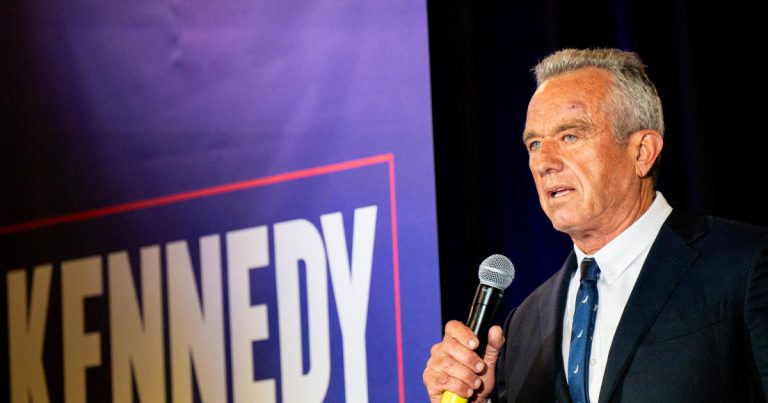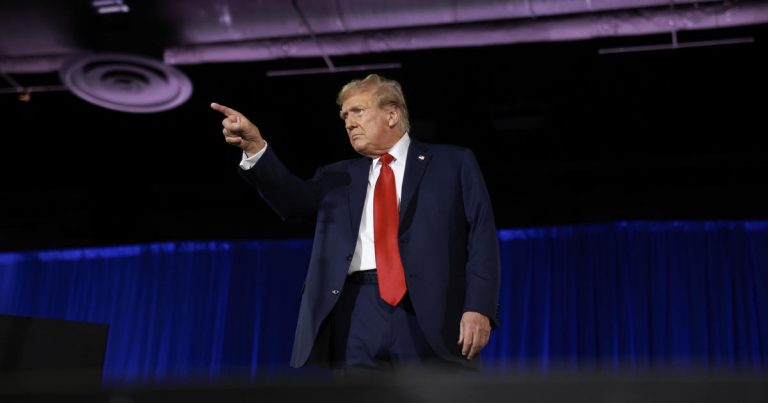How people’s beliefs impact the close election between Trump and Harris, according to CBS News poll.
2024 Presidential Election: A Divided Nation
The 2024 presidential contest between Kamala Harris and Donald Trump is more than just a battle of ideologies. It represents a deep divide within the American populace, with stark differences in perceptions and beliefs about the current state of the nation.
Views on issues such as hurricane relief, the economy, border security, and gender equality sharply diverge between the two candidate’s supporters. For Trump voters, hurricane relief is seen as mainly benefiting those not impacted by the disasters, with suspicions of funds going to undocumented immigrants. In contrast, Harris voters believe relief efforts are aiding those in need and progressing at an appropriate pace.
On the economy, Trump supporters predominantly view it as poor, while Harris supporters see it in a positive light. Disagreements extend to perceptions of the stock market, job growth, and inflation rates, highlighting the contrasting narratives embraced by each side.
When it comes to the U.S.-Mexico border, Harris’ supporters are more inclined to believe that migrant crossings are decreasing, while Trump’s backers assert the opposite. Despite data showing a decline in illegal border crossings, perceptions remain polarized.
The gender gap in perceptions of gender equality efforts is also notable, with Trump supporters, especially men, feeling that such initiatives have gone too far. Conversely, Harris supporters, particularly women, believe there is still progress to be made in achieving gender equality.
Trust in sources of information also varies significantly, with Trump supporters placing more confidence in the former president and social media platforms. In contrast, Harris supporters trust a broader array of sources, including the Vice President herself and government reports.
Foreign influence suspicions add another layer of complexity to the election landscape, with each side perceiving different foreign powers as supporting their opponent. Despite these divisions, the race remains tight, with minimal shifts in national preferences and battleground states.
Amidst these divides, the candidates’ abilities to address key issues such as natural disasters, healthcare, taxes, and abortion rights are scrutinized by voters. While both Harris and Trump have strengths and weaknesses in these areas, the overall sentiment remains divided.
As the 2024 election unfolds, the nation grapples with deep-rooted divisions that extend beyond policy preferences to fundamental beliefs about the state of the country. With contrasting perceptions on key issues and sources of information, the electoral landscape reflects a deeply polarized electorate where trust, truth, and foreign influence play significant roles.
Amid all this, it is perhaps little surprise that neither candidate can effect large swings. The national preference between the two is still essentially even, as it has been since August, with a one-point move back toward Trump both nationally and in the battlegrounds composite. Behind that, independents have shifted a little now toward Trump.
Black voters are still voting heavily Democratic, as in past years, right now supporting Harris at the same rate as they did Mr. Biden in 2020. However, the likelihood of turnout for Black voters lags that of White voters, suggesting perhaps there is more for Harris’ campaign to do in activating these voters.
Neither candidate has the edge on the ability to handle a federal response to natural disasters. Just about a third of voters have a lot of confidence in either Harris or Trump on this.
Voters think Harris is more likely to make access to affordable health care better rather than worse, while more think Trump would make access worse.
On abortion: when voters say this is a major factor, Harris enjoys some of her widest margins over Trump. However, over the course of the campaign, the number who rank it as a major factor has not grown.
Also, her campaign’s argument that Trump will try to ban abortion nationally has not resonated with most voters outside of her own party. Most independents, along with Republicans, think Trump will leave the matter of abortion to the states.
On taxes, Trump has the advantage. Voters are twice as likely to say Harris will make their taxes go up rather than down — and this is true among all income groups. Voters are more divided on what will happen with their taxes under Trump.
This CBS News/YouGov survey was conducted with a representative sample of 2,719 registered voters nationwide interviewed between October 8-11, 2024. The sample was weighted according to gender, age, race, and education based on the U.S. Census American Community Survey and the U.S. Census Current Population Survey, as well as past vote. Respondents were selected to be representative of registered voters nationwide. The margin of error for registered voters is ±2.3 points. Battlegrounds are AZ, GA, MI, NC, NV, PA, and WI.








